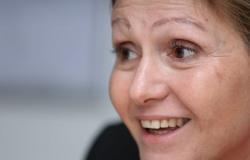DIn her opening speech, Nadia Fettah Alaoui, Minister of Economy and Finance, highlighted the extent of the challenges posed to public financial systems, particularly in the face of “successive Covid-19 crises, the repercussions of the conflict in Ukraine and the Al Haouz earthquake”.
These events revealed, according to the minister, the “fragility and limits” of the current structure of public finances, forcing Morocco to adopt emergency measures to meet the immediate needs of citizens and support the economy. However, the minister insisted on the need to go beyond one-off solutions and adopt a “strategic vision”, recalling that periods of crisis require innovation “out of the box” to rethink public action.
The Treasurer General of the Kingdom, Noureddine Bensouda, also provided a nuanced assessment of current governance. Public finance decisions, although seemingly technical, “are eminently political, because they relate to living together, the pactum societatis (social pact, editor’s note)”. For Bensouda, it is essential that financial choices be guided by a long-term vision, capable of reconciling the partisan imperatives of governments with the collective interest and the sustainability of public finances.
For “a balance between autonomy and unity of action”
Michel Bouvier, president of FONDAFIP and director of the French Review of Public Finances, underlined the “destructuring” progressive model of public governance. According to him, public financial systems, once built on Keynesian principles of state intervention, are today threatened by a proliferation of autonomous entities and a diversity of actors, which make overall coherence difficult. “The multiplicity of actors can be a source of efficiency, but becomes sterile when there is no unity of action”, he warned, recalling the urgency of a “intersectoral coordination” to avoid dispersion of efforts.
The speakers also noted that this fragmentation of the governance model affects public institutions in Morocco as in France. Semi-autonomous organizations and public agencies have multiplied, often with their own and sometimes even conflicting logics, thus creating a risk of “partitioning” of public policies and ineffective spending.
The discussions were oriented towards concrete reforms. Bensouda recalled the efforts undertaken in Morocco to modernize the budgetary framework with the organic finance law of 2015, which made it possible to improve budgetary programming and execution. However, he stressed that public spending, particularly investments and the wage bill, continues to weigh heavily on the state budget.
The Treasurer General of the Kingdom also stressed that the tax reforms undertaken in Morocco since 2004, such as the integration of assessment and collection services, had made it possible to better mobilize tax resources while reducing administrative complexity. However, he also noted that the current model remains “unfinished” and required adjustments to respond to new economic and social challenges.
The conference highlighted an urgent need to rethink the governance of public finances in a systemic manner. The economist Mariana Mazzucato, cited several times during the conference, often pleaded for a “coordination outside the usual silos” to ensure convergence of public policies. This approach involves creating links between the different levels of governance – State, local authorities and public bodies – in order to maximize the impact of budgetary resources and guarantee efficient allocation in a context of strong budgetary constraints.
What emerges from this conference, as evidenced by the closing speech by Michel Bouvier, is the need to “base a new model of financial governance on the balance between autonomy and unity of action”. Contemporary crises require a reconfiguration of the State to respond effectively to economic, social and climatic challenges that are redefining citizens’ expectations of public administration, Bouvier concludes.





